Online Class: Understanding Drug and Alcohol Abuse

-
11Lessons
-
18Exams &
Assignments -
7Hours
average time -
0.7CEUs
Course Description
"Understanding Drug and Alcohol Abuse" is an essential and comprehensive course designed to address the critical issue of substance abuse in our society. This course is not just an educational journey; it's a deep dive into understanding, confronting, and ultimately combating the pervasive challenges of drug and alcohol abuse.
Who Should Take This Course?
This course is tailored for a diverse audience – educators, parents, counselors, teenagers, or anyone touched by the impacts of substance abuse. It's particularly beneficial for those seeking to understand the complexities of addiction or looking for practical ways to support someone struggling with these issues.
Course Structure and Content
The course is divided into two main parts, each offering a wealth of knowledge and practical guidance:
-
Understanding Substance Abuse: The first part delves into the history, facts, and dynamics of drug and alcohol abuse. It provides an up-to-date overview of the most commonly abused substances in the U.S., including alcohol, marijuana, cocaine, ecstasy, heroin, methamphetamines, LSD, and various prescription drugs. We'll explore the reasons behind substance abuse, focusing on the psychological, social, and environmental factors that contribute to addiction.
-
Prevention, Intervention, and Recovery: The second part of the course focuses on practical aspects – prevention strategies, intervention techniques, and recovery processes. We'll discuss the signs of substance abuse, how to approach and support someone struggling with addiction, and the journey towards recovery, including rehabilitation and ongoing support.
Current Trends and Statistics
We'll explore how addiction affects various age groups and social classes, with a special focus on adolescents and teenagers – the most vulnerable group.
Special Notes and Personalized Guidance
The course offers personalized notes and guidance for those who might be experiencing substance abuse issues. These special sections, highlighted in rose-colored boxes, provide direct, compassionate, and practical advice for individuals seeking help.
Beyond the Course
While this course offers extensive knowledge, it emphasizes the importance of professional guidance and community support. We'll provide a comprehensive list of resources, including counseling services, support groups, and online forums, to assist those in need of further help.
Key Takeaways
- Comprehensive Understanding: Gain a deep understanding of the causes, effects, and dynamics of drug and alcohol abuse.
- Practical Skills: Learn how to identify signs of substance abuse, effective intervention strategies, and support mechanisms for recovery.
- Empathy and Support: Develop an empathetic understanding of the struggles faced by individuals dealing with addiction, and how to offer meaningful support.
- Resource Access: Gain access to a wealth of resources for further assistance and ongoing support.
Enrollment and Certification
The course offers flexible enrollment options, making it accessible to a wide audience. Upon completion, participants will receive a certificate, acknowledging their commitment to understanding and addressing the challenges of drug and alcohol abuse.
This class is a vital resource for anyone looking to gain a comprehensive understanding of substance abuse. Whether you're personally affected, supporting someone who is, or simply seeking to broaden your knowledge, this course offers the insights, tools, and resources needed to make a meaningful difference in confronting this critical issue in our society. Join us in this important endeavor to build a healthier, more informed community.
Course Lessons
Lesson 1. From History to Healing: Comprehensive Insights into Drug and Alcohol Abuse
 Lesson 1 Video
Lesson 1 Video Review Practice Worksheet: Lesson-1-WorkSheet-11440.pdf
Review Practice Worksheet: Lesson-1-WorkSheet-11440.pdf Lesson discussions: Reasons for Taking this Course
Lesson discussions: Reasons for Taking this Course Complete: Lesson 1 Activity
Complete: Lesson 1 Activity Assessment: Lesson 1 Review Exam
Assessment: Lesson 1 Review Exam
Lesson 2. Drug Availability: Patterns and Prevention
 Lesson 2 Video
Lesson 2 Video Review Practice Worksheet: Lesson-2-Activity-11441.pdf
Review Practice Worksheet: Lesson-2-Activity-11441.pdf Assessment: Lesson 2 Review Exam
Assessment: Lesson 2 Review Exam
Lesson 3. From Social Pressure to Chemical Imbalance: The Many Faces of Substance Use
 Lesson 3 Video
Lesson 3 Video Review Practice Worksheet: Lesson-3-HomeWork-11442.pdf
Review Practice Worksheet: Lesson-3-HomeWork-11442.pdf Assessment: Lesson 3 Review Exam
Assessment: Lesson 3 Review Exam
Lesson 4. Confronting Dependency: A Guide to Understanding and Overcoming Addiction
 Lesson 4 Video
Lesson 4 Video Review Practice Worksheet: Lesson-4-HomeWork-11443.pdf
Review Practice Worksheet: Lesson-4-HomeWork-11443.pdf Assessment: Lesson 4 Review Exam
Assessment: Lesson 4 Review Exam
Lesson 5. Societal Consequences of Substance Abuse: Understanding and Addressing the Ripple Effect
 Lesson 5 Video
Lesson 5 Video Review Practice Worksheet: Lesson-5-WordSearch-11444.pdf
Review Practice Worksheet: Lesson-5-WordSearch-11444.pdf Assessment: Lesson 5 Review Exam
Assessment: Lesson 5 Review Exam
Lesson 6. Breaking the Cycle: How Family Influence Prevents Addiction
 Lesson 6 Video
Lesson 6 Video Review Practice Worksheet: Lesson-6-Activity-11445.pdf
Review Practice Worksheet: Lesson-6-Activity-11445.pdf Complete: Lesson 6 Activity
Complete: Lesson 6 Activity Assessment: Lesson 6: Prevention in the Home
Assessment: Lesson 6: Prevention in the Home Assessment: Lesson 6 Review Exam
Assessment: Lesson 6 Review Exam
Lesson 7. Crafting Drug-Free Futures: Schools at the Forefront
 Lesson 7 Video
Lesson 7 Video Review Practice Worksheet: Lesson-7-Downloadable-11446.pdf
Review Practice Worksheet: Lesson-7-Downloadable-11446.pdf Assessment: Lesson 7: Schools
Assessment: Lesson 7: Schools Assessment: Lesson 7 Review Exam
Assessment: Lesson 7 Review Exam
Lesson 8. A Safer Workplace: Harnessing the Power of Drug Prevention Programs
 Lesson 8 Video
Lesson 8 Video Review Practice Worksheet: Lesson-8-Downloadable-11447.pdf
Review Practice Worksheet: Lesson-8-Downloadable-11447.pdf Assessment: Lesson 8: Workplace Prevention
Assessment: Lesson 8: Workplace Prevention
Lesson 9. Comprehensive Assessment and Intervention for Substance Abuse: Mapping the Path to Recovery
 Lesson 9 Video
Lesson 9 Video Review Practice Worksheet: Lesson-9-WordSearch-11448.pdf
Review Practice Worksheet: Lesson-9-WordSearch-11448.pdf Assessment: Lesson 9 Review Exam
Assessment: Lesson 9 Review Exam
Lesson 10. Addiction Treatment: A Lifeline to Sobriety
 Lesson 10 Video
Lesson 10 Video Review Practice Worksheet: Lesson-10-HomeWork-11449.pdf
Review Practice Worksheet: Lesson-10-HomeWork-11449.pdf Complete: Lesson 10 Activity
Complete: Lesson 10 Activity Assessment: Lesson 10 Review Exam
Assessment: Lesson 10 Review Exam
Lesson 11. The Journey of Recovery: Embrace, Evolve, Empower
 Lesson 11 Video
Lesson 11 Video Review Practice Worksheet: Lesson-11-Activity-11450.pdf
Review Practice Worksheet: Lesson-11-Activity-11450.pdf Lesson discussions: End of Course Poll; Course Comments; Course Comments
Lesson discussions: End of Course Poll; Course Comments; Course Comments Assessment: Lesson 11: Following Up
Assessment: Lesson 11: Following Up Assessment: The Final Exam
Assessment: The Final Exam Assessment: Lesson 11 Review Exam
Assessment: Lesson 11 Review Exam
Learning Outcomes
- Define the historical factors contributing to substance abuse by identifying key events and trends from ancient to modern times.
- Describe the role of education and counseling in the prevention and intervention of substance abuse, using specific techniques and examples discussed in the course.
- Describe effective community-based strategies that aid in the prevention of drug and alcohol abuse among adolescents
- Identify various pathways through which illegal drugs are distributed globally and describe their impact on youth access
- Describe the impact of substance abuse on brain chemistry, specifically focusing on the role of neurotransmitters such as dopamine.
- Identify the key psychological, environmental, and societal factors contributing to substance abuse, demonstrating an understanding of their interrelations.
- Identify and describe the key neurological changes and behaviors associated with addiction as a chronic disease.
- Recognize and differentiate between the clinical signs of substance abuse and addiction using the criteria provided.
- Describe effective strategies for preventing and addressing substance abuse, focusing on education, treatment, and policy reform.
- Recognize the societal consequences of substance abuse, including economic costs and impacts on families and communities.
- Demonstrate the ability to implement at least two practical strategies for preventing substance abuse in children through active parental involvement and open communication.
- Identify and describe at least three risk and protective factors influencing substance abuse in children, based on the National Institute on Drug Abuse (NIDA) guidelines.
- Define key components of effective school-based drug prevention programs, including community involvement and interactive engagement.
- Demonstrate mastery of lesson content at levels of 70% or higher.
Additional Course Information

- Document Your Lifelong Learning Achievements
- Earn an Official Certificate Documenting Course Hours and CEUs
- Verify Your Certificate with a Unique Serial Number Online
- View and Share Your Certificate Online or Download/Print as PDF
- Display Your Certificate on Your Resume and Promote Your Achievements Using Social Media

Student Testimonials
- "This course was great! I want to go to work in this field and found it not only accurate but helpful." -- Anita G.
- "I found this coarse to be very informative and enables me with the knowledge and skills to address any related problems within my business." -- Bulent U.
- "I think the course was super helpful, and has taught me a lot about drug rehabs, detoxification, and a lot about workplace safety." -- Alden B.
- "I learned a lot of new things as well as things I remembered during this course. The information was helpful for me to get back in the field of addiction. I am glad I took this course." -- Bernadette B.
- "I think this course is very helpful and I like that it teaches me how to support others in need of help." -- Christina M.
- "Thank you so much! I am now well-equipped to understand the clients that have substance misuse disorders." -- Monica H.
- "I thought this course was a very helpful and great way to guide addicts and people looking to work in this field." -- Megan M.
- "I was impressed by Instructor Dr. Deirdre Mithaug's outstanding organization of the lessons, assignments and examinations!" -- Alvin O.
- "The course was very well put together, and to the instructor, job well done." -- Dexter K.
- "This course was helpful and interesting." -- Donna B.
Related Courses
-
 22 hours
2.2 CEUs
Anatomy and Physiology 101
+ More Info
22 hours
2.2 CEUs
Anatomy and Physiology 101
+ More Info
-
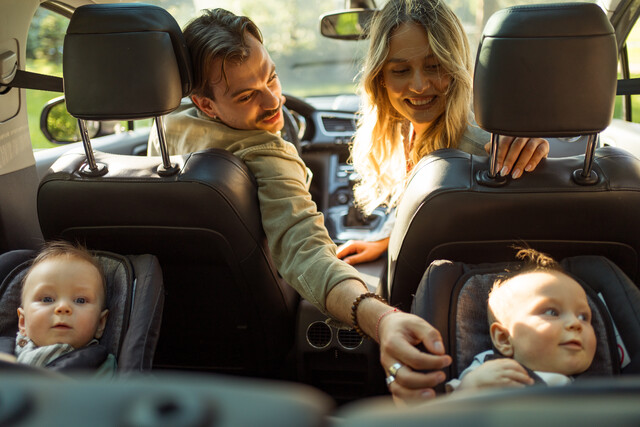 5 hours
0.5 CEUs
Child Safety for Parents
+ More Info
5 hours
0.5 CEUs
Child Safety for Parents
+ More Info
-
 4 hours
0.4 CEUs
Stress Management
+ More Info
4 hours
0.4 CEUs
Stress Management
+ More Info
-
 5 hours
0.5 CEUs
Creative Thinking Skills
+ More Info
5 hours
0.5 CEUs
Creative Thinking Skills
+ More Info
-
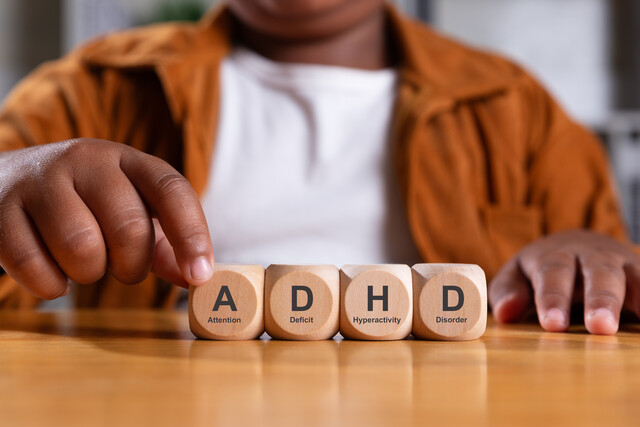 7 hours
0.7 CEUs
Attention Deficit Disorders: ADD and ADHD
+ More Info
7 hours
0.7 CEUs
Attention Deficit Disorders: ADD and ADHD
+ More Info
-
 2 hours
0.2 CEUs
Professional Babysitting Skills
+ More Info
2 hours
0.2 CEUs
Professional Babysitting Skills
+ More Info
-
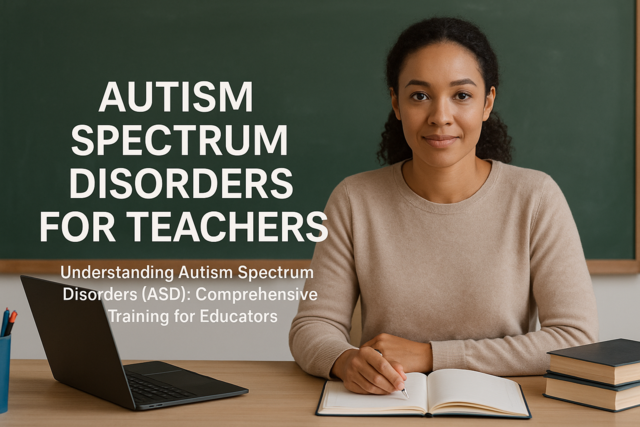 9 hours
0.9 CEUs
Autism Spectrum Disorders for Teachers
+ More Info
9 hours
0.9 CEUs
Autism Spectrum Disorders for Teachers
+ More Info
-
 7 hours
0.7 CEUs
Crystal Therapy
+ More Info
7 hours
0.7 CEUs
Crystal Therapy
+ More Info
-
 5 hours
0.5 CEUs
Basic Parenting Skills
+ More Info
5 hours
0.5 CEUs
Basic Parenting Skills
+ More Info
-
 3 hours
0.3 CEUs
Empowerment for Single Parents
+ More Info
3 hours
0.3 CEUs
Empowerment for Single Parents
+ More Info
-
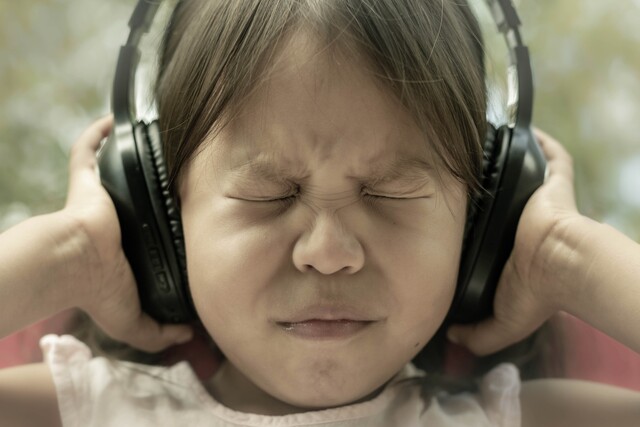 9 hours
0.9 CEUs
Emotional and Behavioral Disorders
+ More Info
9 hours
0.9 CEUs
Emotional and Behavioral Disorders
+ More Info
-
 7 hours
0.7 CEUs
Healthy Relationships
+ More Info
7 hours
0.7 CEUs
Healthy Relationships
+ More Info
-
 8 hours
0.8 CEUs
Assertiveness Training
+ More Info
8 hours
0.8 CEUs
Assertiveness Training
+ More Info
-
 5 hours
0.5 CEUs
Emotional Intelligence
+ More Info
5 hours
0.5 CEUs
Emotional Intelligence
+ More Info
-
 5 hours
0.5 CEUs
Depression Management
+ More Info
5 hours
0.5 CEUs
Depression Management
+ More Info
-
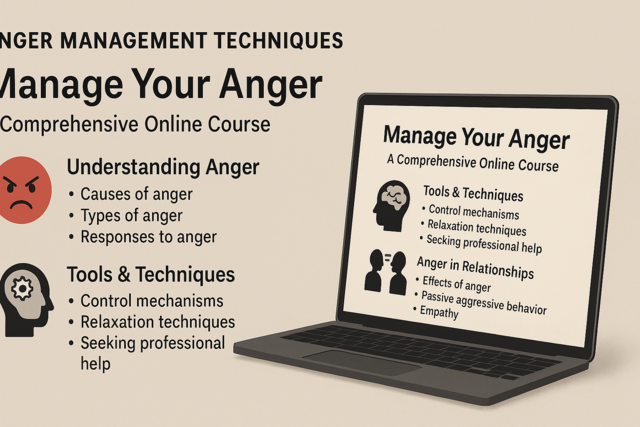 5 hours
0.5 CEUs
Anger Management Techniques
+ More Info
5 hours
0.5 CEUs
Anger Management Techniques
+ More Info
-
 5 hours
0.5 CEUs
Positive Parenting Techniques
+ More Info
5 hours
0.5 CEUs
Positive Parenting Techniques
+ More Info
-
 5 hours
0.5 CEUs
Critical Thinking Skills
+ More Info
5 hours
0.5 CEUs
Critical Thinking Skills
+ More Info
-
 6 hours
0.6 CEUs
Cybersecurity 101
+ More Info
6 hours
0.6 CEUs
Cybersecurity 101
+ More Info
-
 6 hours
0.6 CEUs
Confidence Building
+ More Info
6 hours
0.6 CEUs
Confidence Building
+ More Info
-
 7 hours
0.7 CEUs
Workplace Sexual Harassment in the #MeToo Era
+ More Info
7 hours
0.7 CEUs
Workplace Sexual Harassment in the #MeToo Era
+ More Info
-
 7 hours
0.7 CEUs
Innovative Thinking Skills
+ More Info
7 hours
0.7 CEUs
Innovative Thinking Skills
+ More Info
-
 5 hours
0.5 CEUs
Home Safety
+ More Info
5 hours
0.5 CEUs
Home Safety
+ More Info
-
 7 hours
0.7 CEUs
Conflict Resolution
+ More Info
7 hours
0.7 CEUs
Conflict Resolution
+ More Info






